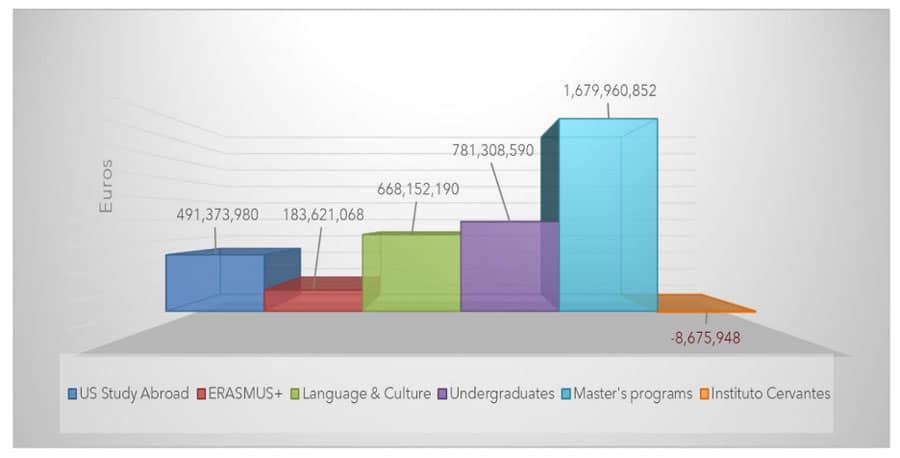Spain moving to expand partnerships and student recruitment in Africa
- Spain aims to increase the number of African students studying with Spanish schools and higher education institutions
- In so doing, Spain joins other destination countries increasing their recruitment activities in Africa, including France, Russia, the US, UK, and Canada
Morocco is an important international student market for Spain, sending close to 7,000 students in 2019/20. Now, the Spanish government has announced an ambition to attract not just more Moroccan students, but also more students from across Africa – particularly Sub-Saharan Africa. The median age of the massive, combined population of Sub-Saharan African countries is 19.5 years. This – combined with the surging demand for higher education and the prestige attached to overseas degrees throughout the continent – translates into a huge pool of college-age students who want to study abroad.
Changing the dynamics of migration
Spain’s new focus on Africa, encapsulated in a policy document entitled Focus Africa 2023, is part of a larger intention to develop deeper diplomatic and economic ties with African countries and to work with them to promote stability and peace in the region.
Spain has struggled with how to deal with a large influx of illegal immigrants who have been forced to flee their region because of violence and poverty. Collaborating with African countries to strengthen their education systems would expand a different pool of migrants – students with enough schooling to succeed in Spanish higher education and skilled workers ready to contribute to the Spanish economy. This an urgent need given Spain’s issues with “brain drain” of its own students and workers to other countries.
The strategy document indicates more than a dozen African countries that will be priorities for bi-lateral cooperation and for the recruitment of skilled workers and students:
“Focus Africa 2023 pays particular attention to Nigeria, Ethiopia and South Africa, which are referred to in the Third Plan Africa as ‘anchor countries’ due to their large populations, their economic and political clout, and their influence on the stability of their sub-regions; as well as Senegal, Côte d’Ivoire, Ghana, Kenya, Tanzania, Mozambique, and Angola, considered ‘priority countries.’”
Morocco, Algeria, Egypt, Rwanda, and Uganda are also singled out as priorities in the “economic” sphere.
A similarity with China?
The 80-page plan lays out a comprehensive approach for partnering with African countries for greater stability and prosperity – and the wide-ranging policy framework puts one in mind of another country’s strategy in Africa over the past decade. China has poured billions into Africa in recent years to finance a wide range of infrastructure and economic development projects. The scale and ambition of that strategy reflects an early recognition of the potential of Africa’s burgeoning youth populations, and China’s multi-pronged investment in the region was a long-term game that has already allowed it to strengthen its economy with skilled workers and students.
It is not coincidental that over a period during which China increased its presence and investment in Africa, the number of African students enrolling with Chinese higher education institutions grew by 258% (2011–2017). By contrast, the growth rate of African students going to the US was 30% in that period, and there were declines of -2% for France and -24% for the UK.
Others have also set their sights on Africa
Chinese institutions’ ability to recruit international students has been hampered by the incredibly tight border policies the Chinese government has held to throughout the pandemic. This opens a door for other countries to claim more share of African students – notably France and possibly Spain if all goes to plan.
France is the world’s top enroller of African francophone students. As we recently reported, students from Senegal, the Ivory Coast, Republic of Congo, Benin, Gabon, and Cameroon are increasingly deciding to enrol in French institutions.
Russia has also been very active in recruiting students from Africa – and Russian President Vladimir Putin has repeatedly stressed his commitment to the region particularly in the context of his invasion of Ukraine. In advance of talks with African Union leaders centred on what to do about food shortages caused by blockades of Ukrainian grain, Mr Putin issued this cryptic comment to reporters:
“At the new stage of development, we place great importance on our relations with African countries, and I must say this has had a certain positive result.”
By contrast, Ukraine’s economy will be seriously damaged by its inability to recruit in Africa because of the war. Al Jazeera has reported that international students’ spending makes up a bigger proportion of GDP in the Ukraine than in the US. Morocco, Nigeria, Algeria, and Egypt had been sending increasing numbers of students to Ukraine before the war.
Meanwhile, educators in the US, UK, and Canada have also been recruiting more intensely in Africa, in a bid to further build and diversity their international enrolments.
Room to grow
Last summer, the Spanish government initiated a seminar series entitled Cooperacion Academica Espana-Africa, where expert speakers discussed the task ahead for Spain: how to increase its small population of African students amid daunting competition from countries such as China and France.
The seminar report noted that “Only 352 master students came from Sub-Saharan Africa, which is a low figure compared to that of Latin America (14,615), Asia (5,050) and Northern Africa (671).” Attracting African students to master’s-level studies would be a natural priority for Spain given that, according to a government report in the economic impact of international students in 2020, master’s programmes contribute the most to the Spanish economy.

For additional background, please see:















